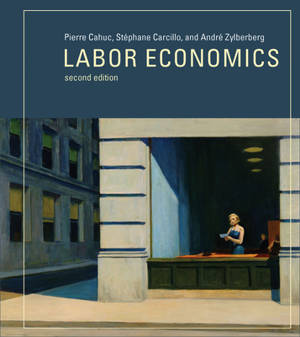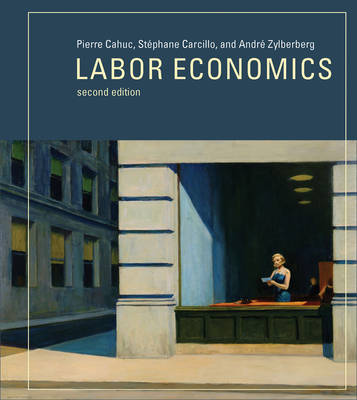
- Afhalen na 1 uur in een winkel met voorraad
- Gratis thuislevering in België vanaf € 30
- Ruim aanbod met 7 miljoen producten
- Afhalen na 1 uur in een winkel met voorraad
- Gratis thuislevering in België vanaf € 30
- Ruim aanbod met 7 miljoen producten
Omschrijving
This landmark graduate-level text combines depth and breadth of coverage with recent, cutting-edge work in all the major areas of modern labor economics. Its command of the literature and its coverage of the latest theoretical, methodological, and empirical developments make it also a valuable resource for practicing labor economists.
This second edition has been substantially updated and augmented. It incorporates examples drawn from many countries, and it presents empirical methods using contributions that have proved to be milestones in labor economics. The data and codes of these research publications, as well as numerous tables and figures describing the functioning of labor markets, are all available on a dedicated website (www.labor-economics.org), along with slides that can be used as course aids and a discussion forum.
This edition devotes more space to the analysis of public policy and the levers available to policy makers, with new chapters on such topics as discrimination, globalization, income redistribution, employment protection, and the minimum wage or labor market programs for the unemployed. Theories are explained on the basis of the simplest possible models, which are in turn related to empirical results. Mathematical appendixes provide a toolkit for understanding the models.
Specificaties
Betrokkenen
- Auteur(s):
- Vertaler(s):
- Uitgeverij:
Inhoud
- Aantal bladzijden:
- 1080
- Taal:
- Engels
- Reeks:
Eigenschappen
- Productcode (EAN):
- 9780262027700
- Verschijningsdatum:
- 1/08/2014
- Uitvoering:
- Hardcover
- Formaat:
- Genaaid
- Afmetingen:
- 208 mm x 236 mm
- Gewicht:
- 1891 g

Alleen bij Standaard Boekhandel
Beoordelingen
We publiceren alleen reviews die voldoen aan de voorwaarden voor reviews. Bekijk onze voorwaarden voor reviews.









